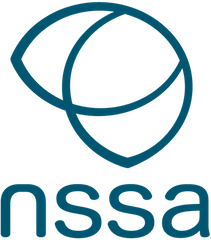A Rolling Stone Doesn't Gather Moss - A Junior Scientists Perspective
It was 2019 when I first stepped in the neurophysiology field as a fresh trainee scientist, an open and curious student on her university work placement program. By the end of the year, I was independently doing all kinds of outpatient and inpatient EEGs and over the next couple of years, continuing to gain experience, especially with ICU and continuous EEG monitoring. The natural next step was to start developing skills for video-EEG monitoring (VEM). Although I was certainly a little intimidated, with my team's enthusiastic encouragement, I accepted the challenge of doing a week of VEM on my own. Here is a peek into some of my experiences and epiphanies that I had during the week, specifically aimed at other junior scientists who are, or who might be considering, stepping into the world of VEM.
Prepare beforehand:
The more preparation you do before the patients arrive, the less surprises you'll get when you're connecting them. Our VEM unit is on a different floor to our Neurosciences department, so I took some time in the early morning to make sure that the VEM unit had all the necessary supplies and that I had access to back-up equipment if needed. I also read a little bit about each patient's medical and seizure history to know what to look out for during the week and better anticipate their needs.
Lay a solid groundwork
Although now it seems intuitive, I did realise the importance of going the extra mile on the first day of VEM. It is better to take your time connecting patients and making sure that the electrodes are properly glued and secured, even if it means that some studies would start much later than others.
Expect technical issues
Although it is not unreasonable to hope for fully functioning equipment, it's not uncommon to be blindsided by technical issues. During my first week of VEM, our building had multiple planned power outages, some with very little notice. Not only was it disruptive, it somehow also caused issues with our control boxes. Although we were losing time and potential data, I knew that it was more helpful to stay calm and replace the equipment that I could while waiting for technical support, instead of panicking about any lost data.
Accept help
Whether it's setting up a patient with a disability, dealing with frustrated patients or carers, or trying to troubleshoot computers, it's always good to remind yourself that there are other scientists and nurses who are there to lend a hand. Even when it comes to reviewing data, it's always ok to ask questions and seek second opinions from more senior scientists and doctors. Keep in mind that at the end of the day, you're still learning, and no one expects you to be an expert straight-away.
And most importantly,
Take opportunities as they come but also be proactive. Workloads are increasing across all areas of healthcare, especially after the pandemic. It's easy to get stuck in a routine, and for the focus to shift to just getting the work done, rather than up-skilling. I am lucky enough to work in a team that encourages me to step out of my comfort zone but not everyone can wait around for new opportunities. Junior scientists who still have a lot to learn need to be active participants in their careers and be proactive in seeking new learning and growth from their work environments. One of my favourite artists once rapped, "Moss surely grows on a stone that doesn’t roll". It's a reminder that it doesn't take much time to become stagnant and the only way to avoid that is to continuously challenge yourself with new experiences.
As I work towards my own professional development, I hope other prospective and junior scientists also take on new roles and build their repertoires as we tackle the ever-expanding field of neurophysiology.
BTS - Intro: Never Mind (English Translation). (n.d.) Genius. Retrieved June 04, 2022, from <genius.com/Genius-english-translations-bts-intro-never-mind-english-translation-lyrics.”
Written by Mansi Aggarwal
Alfred Hospital - Melbourne

